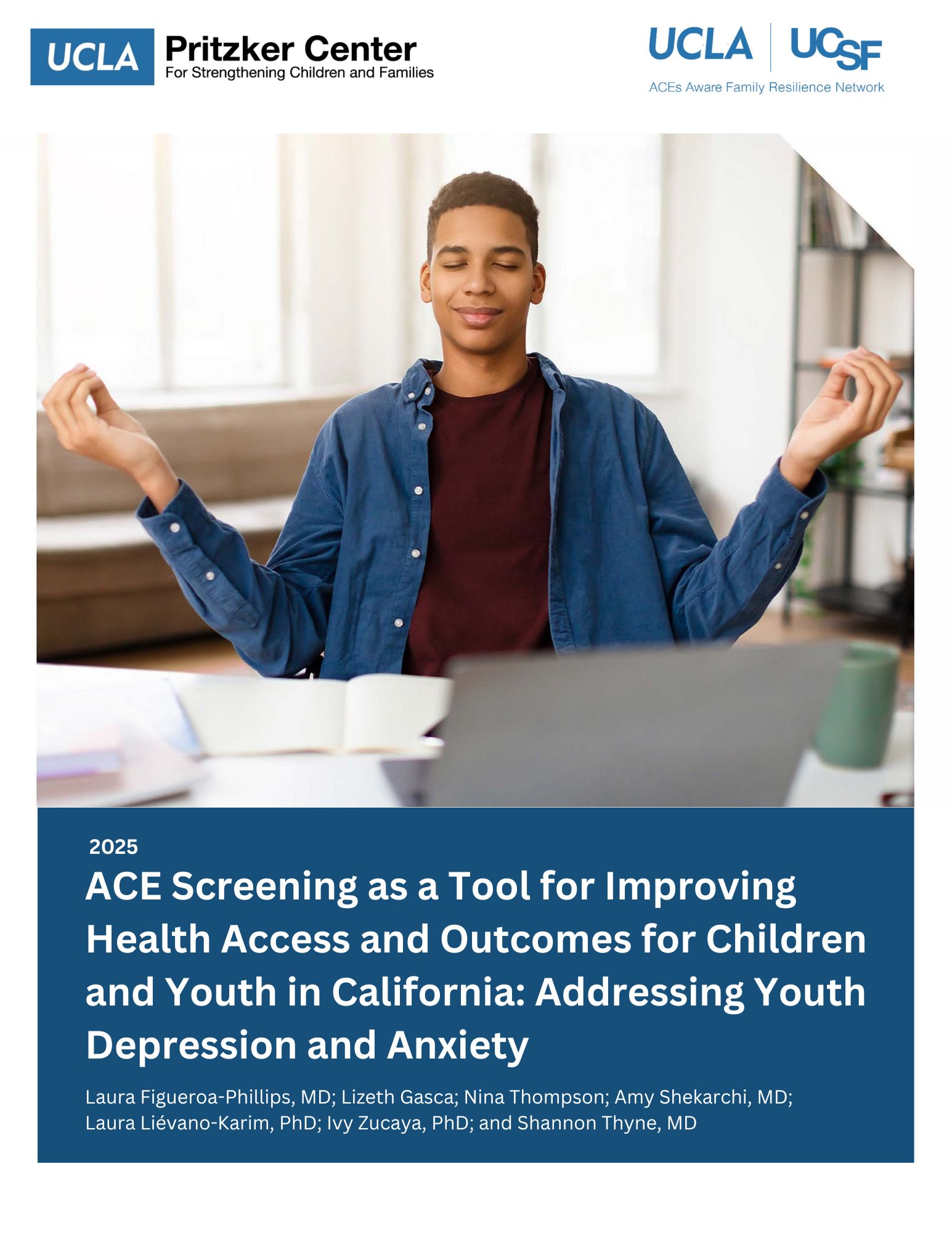ACE Screening as a Tool for Improving Health Access and Outcomes for Children and Youth in California
Addressing Youth Depression and Anxiety

California launched ACEs Aware in 2019 to support training and screening activities related to identifying and responding to adverse childhood experiences (ACEs). Uptake has been steady, with over 20,000 Medi-Cal providers certified to bill for screening activities and more than 1.5 million children, youth, and young adults ages 0 to 20 enrolled in Medi-Cal screened for ACEs.
In addition to in-clinic response activities provided by clinical teams at the time of ACE screening, patients with identified risk for toxic stress may be referred to other clinicians or community programs to help address unmet needs. As one example of a program designed to address unmet needs for children identified through ACE screening, the Los Angeles County Department of Health Services (LA DHS) partnered with Insight LA to implement a virtual mindfulness meditation program within the Strong, Healthy, and Resilient Kids (SHARK) clinic. The SHARK clinic is a pediatric specialty clinic supporting children with complex medical, developmental, and behavioral health needs, particularly those with high ACE scores. The clinic acts as a central clinical Hub for LA DHS’ Trauma-Informed Network of Care group of health, education, and community service organizations focused on connecting patients and families to resources improve health and buffer toxic stress.
This brief highlights findings from the implementation of a six-week mindfulness meditation intervention designed to address anxiety, depression, and physical symptoms associated with toxic stress among a diverse group of children and adolescents with a history of ACEs. The program had high enrollment rates, and participants experienced significant, sustained improvements in anxiety and depression scores and a significant reduction in physical symptoms associated with toxic stress.
Key Takeaways
• ACE screening can be an effective starting point for identifying risk of toxic stress and initiating referrals to services that support the mitigation of stress-related mental and physical health symptoms.
• Mindfulness meditation is one example of an evidence-based intervention to mitigate the effects of toxic stress – including anxiety, depression, and physical symptoms associated with toxic stress.
• Opportunities exist to support innovative programs designed to improve health outcomes for those at risk for toxic stress through enhanced partnerships between Managed Care Organizations (MCOs) and practice groups, and by leveraging newly funded programs under the California Advancing and Innovating Medi-Cal (CalAIM) initiative (in these instances, such as the community worker benefit, Enhanced Care Management, and non-specialty mental health services) to support better health outcomes for children and youth.


Recommendations
1. MCOs should recognize that interventions like mindfulness meditation can support mitigation of toxic stress physiology and work with affiliated practices to improve the implementation of programs designed to address gaps in care for children and youth, support health equity across California’s Medi-Cal population, and achieve the Bold Goals set forth by the California Department of Health Care Services.
2. MCOs should ensure that practice groups are trained on the impact of ACEs and toxic stress and support implementation of evidence-based strategies to mitigate the toxic stress response.
3. Policymakers should encourage MCOs to leverage existing CalAIM funded programs (e.g. ECM, doula services, specialty and non-specialty mental health, dyadic care, and community health worker services) more effectively, equitably, and efficiently by: (1) simplifying workflows for entry into services; (2) developing clear and achievable onboarding processes for personnel, including doulas, community health care workers, and social workers; and (3) ensuring timely and appropriate reimbursement for these services.
This work was funded by the UCLA/UCSF ACEs Aware Family Resilience Network (UCAAN) and Olive View-UCLA Education and Research Institute.


